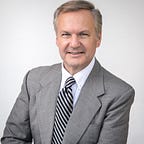January 6, 2021 and its impact on trust
Our nation is exceptionally troubled about the events that occurred on January 6 in the nation’s capital. The subsequent fallout is spreading beyond the crime scene and having a substantial impact including a growing suppression of online (free) speech.
The move by many private social media companies to remove content and participants from their online platforms will add another facet and challenge to a movement that’s been underway by journalism and pro-democracy groups and their related philanthropies to improve trust in media and in democracy in the U.S. Much of their work centers on reforms that address the creation and spread of misinformation and their sources. The recent actions by the social media companies to remove inflammatory speech and their creators from their online platforms is an attempt to avert further violence blamed on the spread of misinformation and lies — most of it targeting the media and the government.
January 6 was the flash point and wake up call to take this practice as a serious societal threat. However, suppression of free expression is also a threat to society. For those whose political ideologies fall on the right, they are feeling victimized by the actions of these companies to censor their online speech and conversations. For those whose ideologies lean left, while they may applaud the redaction, they need to understand the consequences. Both sides have valid reasons for concern.
While most of us did not foresee an assault on the nation’s capital, we have seen indicators in the inflammatory rhetoric and growing polarization occurring within government and among the public that have dramatically increased (but did not originate) with the election of President Trump.
No one can accurately say how this is going to end. But we see where it is heading. And the negative impact from the actions being taken is dangerous. For example, we know what results from suppressing conversations on mainstream social networks where different ideological points of view are common. Those whose opinions and comments are suppressed retreat to other social networks where contrary points of view are all but absent in these filter bubbles where the conversations are more extreme and the participants are more radical. This is not what we want and certainly not a way to bring folks with different opinions together.
The historical public square and the openness of public meetings by our governing institutions were designed intentionally to allow broad public participation in conversations and decisions about issues that affected the whole. Today, the public square is digital, having been taken over by private companies whose priority is to pursue profit, not democracy, which makes sense. However, their platforms are being utilized by both the public and their government institutions to serve as forums for political and policy discussions.
Unfortunately, governments still struggle to replicate the important components of our democracy (public comment and free expression) as they transitioned to the Internet. The broken promise of “Gov 2.0” has been the failure to bridge the chasm between the electors and the electorate that it touted would occur online by improving communication and information sharing and consequently, our democracy.
Instead, private companies, lacking the guardrails that the government operates with, assumed a facilitator role not by design but by default and the potential for revenue. Key components important to ensure informed and engaged dialog like attribution and validation were replaced by anonymity and disparagement. They are called “social” networks for a reason.
We can’t fall back to our bunkers. We have to have more conversations that include representatives from the public, press and public sector, with support from the GovTech community to collaborate on the many complex challenges. I read a recent blog that stated “…when it comes to building trust, there are no home runs, doubles or triples — just countless sacrifice bunts.” Change will be incremental, but it can happen. What occurred on January 6th in D.C. has added more urgency and increased the odds to rebuilding trust in our democracy, our news media and in others.
